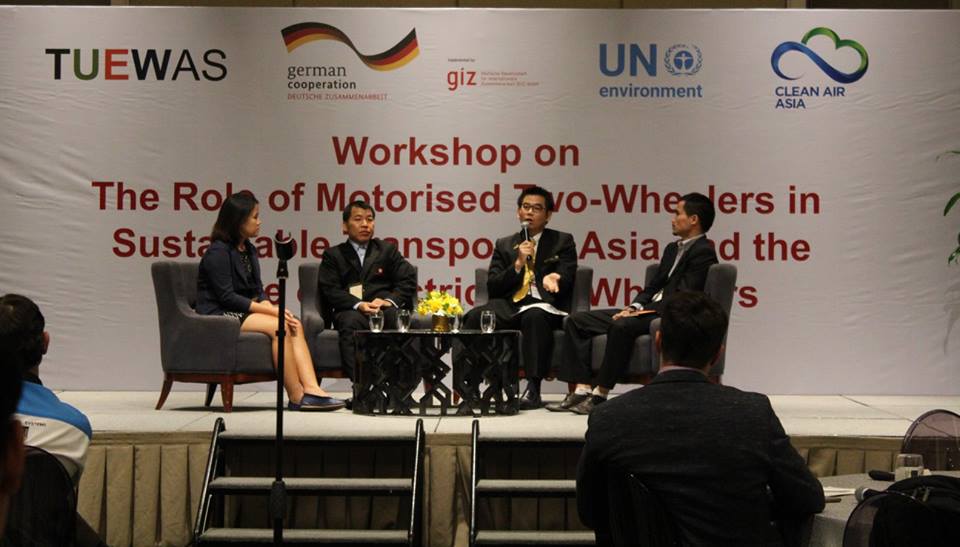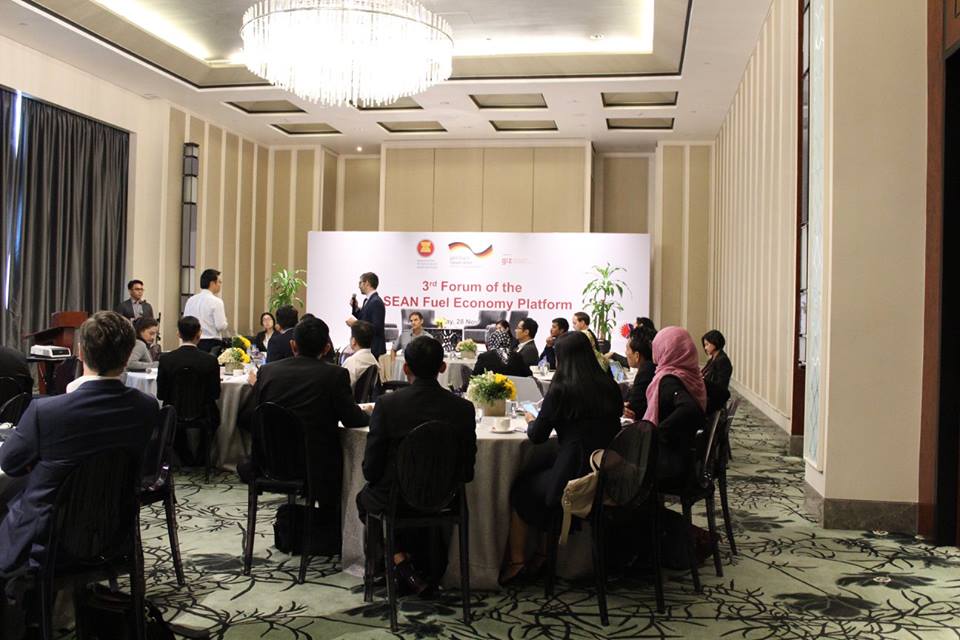Menu
Following ASEAN’s Kuala Lumpur Transport Strategic Plan (KLTSP) 2016-2025, the 3rd forum of the ASEAN Fuel Economy Platform was held on 28 November 2017 in Manila. The forum aimed to discuss matters related to fuel economy for the transport sector in Southeast Asian region. This forum is a continuation of the previous two which were held in November 2016 in Kuala Lumpur, and in March 2017 in Bangkok. GIZ Transport and Climate Change in ASEAN Region (GIZ-TCC) as the organiser also arranged a side event “Workshop on the Role of Motorised Two-Wheelers in Sustainable Transport in Asia and the Future of Electric Two-Wheelers”, in collaboration with The United Nations Environment Programme (UNEP) and Clean Air Asia, one day prior to the forum.

As an opening event, the one-day workshop aimed to provide social, economic, and environmental aspects of two-wheelers; policies, standards, and regulations of two-wheelers; urban infrastructure characterisation of the use of electric two-wheelers; and acceptability of electric two-wheelers. The fuel economy platform forum itself has the main objectives to improve the collective knowledge of fuel economy in ASEAN; gather the inputs from stakeholders on the goals and recommendations for the ASEAN light-duty vehicles (LDV) fuel economy roadmap; and increase coordination and cooperation among stakeholders to drive implementation of fuel economy policies in the region. Both the workshop and forum were attended by government officials from several ASEAN Member States (AMS), academia, and other organisations working on transportation in general.

In the GIZ-TCC workshop, several AMS, namely Malaysia, the Philippines, Thailand and Vietnam, shared their country perspectives and overview of policies related to two-wheelers. In ASEAN, relatively little regulatory attention has been given to two-wheelers, which are the predominant mode of transport in the region. Many of the existing fuel driven two-wheelers are old, inefficient, and emit substantial amounts of particulate matter and black carbon, thus contribute greatly to local air pollution. It was concluded that electric two-wheelers are good entry points to electro-mobility as experts agreed that they provide net carbon benefits regardless of the ‘upstream’ electricity-carbon mix.
The second day discussion mainly focused on goals and key recommendations for ASEAN LDV fuel economy roadmap 2018-2025. Costs and benefits of advancing LDV fuel economy as well as current fuel economy status and policy efforts from AMS were shared in the forum. One of the clear advantages in advancing LDV fuel economy is the reduction of oil consumptions and hence the amount of emission. Furthermore, approaches and challenges on data collection for fuel economy policies from academia perspective were also shared. With this forum, it is expected that ASEAN can formulate its goals and action plans on advancing fuel economy as well as setting the regulatory frameworks in the future. (PA. Featured photo credit: the Philippine DOTr-ICD)
